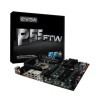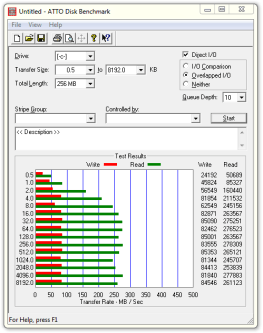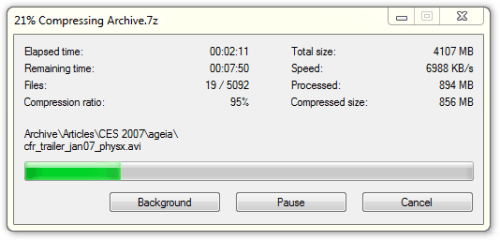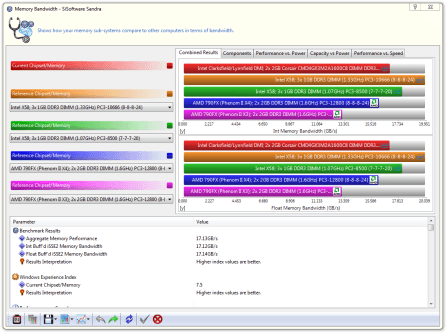- Qualcomm Launches Snapdragon 4 Gen 2 Mobile Platform
- AMD Launches Ryzen PRO 7000 Series Mobile & Desktop Platform
- Intel Launches Sleek Single-Slot Arc Pro A60 Workstation Graphics Card
- NVIDIA Announces Latest Ada Lovelace Additions: GeForce RTX 4060 Ti & RTX 4060
- Maxon Redshift With AMD Radeon GPU Rendering Support Now Available
EVGA P55 FTW

It’s been a while since I last took a look at a motherboard that I knew I wanted in my own machine, but EVGA’s P55 FTW ended that drought. The board lacks S-ATA and USB 3.0, but it has everything else, from great aesthetics and design to impressive overclocking, along with a handful of useful features not often found on the competition’s boards.
Page 8 – Storage & Memory: ATTO, 7-Zip, Sandra
In the world of benchmarking, there seem to be many tools that can accomplish the same thing as a hundred others, and where storage is concerned, that couldn’t be more true. Although we’ve used HD Tune Pro, HD Tach and others in the past, we’ve opted to begin using ATTO, as it’s incredibly lightweight (at less than 100KB), yet offers a fair amount of flexibility.
For our run with ATTO, we leave all options at default, except the Queue Depth, which is increased to the max value of 10. It’s also important to note that we’re benchmarking the OS drive, which happens to be Intel’s X25-M 80GB (Gen 1).


7-Zip
Thinking back about a decade ago, archiving applications were kind of scarce. Well, the free ones were. Applications such as WinRAR and WinZIP have been available for a while, but a free solution is going to appeal to a far greater audience, especially if you don’t need or want the extra features that come included with the aforementioned options.
While 7-Zip may not be the most robust archiver out there, in looks or in features, it’s free, and offers a great amount of functionality and performance given that fact. For our test with 7-Zip, we take a 4GB folder littered with just over 5,000 files and archive it to our secondary drive, the mechanical Seagate Barracuda 7200.11 500GB.

SiSoftware Sandra 2009 SP4
Like Futuremark, SiSoftware is another company that needs no introduction. As far back as I can remember using Windows, I was using Sandra to check up on my machine, and to stress it. Over time, the company has added in numerous ways to benchmark your PC, and there’s pretty much nothing it can’t tackle. The company even recently added in GPGPU benchmarking, so they’re really on top of things.


There’s nothing out of the ordinary here with any of the results, although it seems rather clear that when dealing with SSDs, the storage performance can vary quite a bit from board to board and situation to situation.
Support our efforts! With ad revenue at an all-time low for written websites, we're relying more than ever on reader support to help us continue putting so much effort into this type of content. You can support us by becoming a Patron, or by using our Amazon shopping affiliate links listed through our articles. Thanks for your support!








